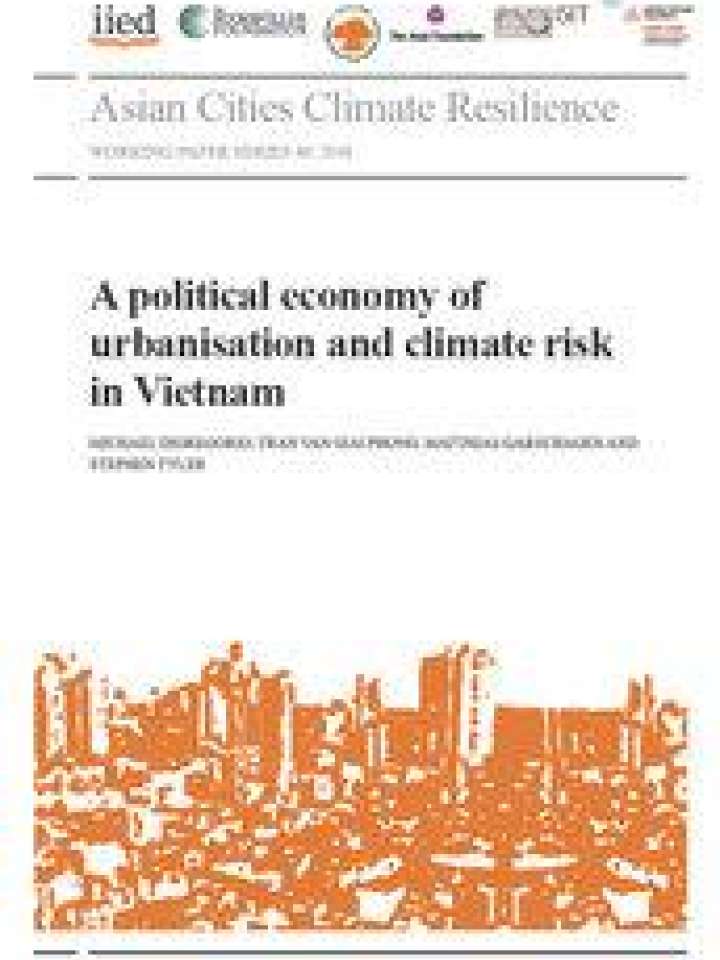A political economy of urbanisation and climate risk in Vietnam
This report uses a problem-driven political economy approach to analyse how the leadership of three mid-sized cities in Vietnam, Can Tho, Quy Nhon and Da Nang, are trying to pursue their urban growth ambitions under conditions of increasing awareness of climate change risks. Cities do not only grow into areas highly exposed to natural hazards such as floods or typhoons but also intensify the impacts of these very hazards, particularly flooding, due to their consumption of open space and encroachment into wetlands, floodplains and coastal areas.
The authors recommend the following (p. 47):
- master planning should:
- proscribe specific kinds of urban development only in those cases that clearly threaten public safety;
- reflect real collaboration with other agencies;
- consider feasibility, financing, and sequencing;
- be conducted in an open and accountable process that considers the diverse needs of current
and future residents.
- technical standards may include:
- limited development of floodways, for example, permitting uses that do not impact flood discharge capacity, like football fields, hiking trails, farms and fishponds;
- innovative restoration projects, like the use of wetlands for wastewater treatment;
- reorganisation of dense slum neighbourhoods through, for example, land readjustment that create buffers between housing areas and potential flood hazards;
- development of coastal or sloping lands that reduce climate impacts through innovative approaches to drainage, runoff and erosion control.
Explore further
